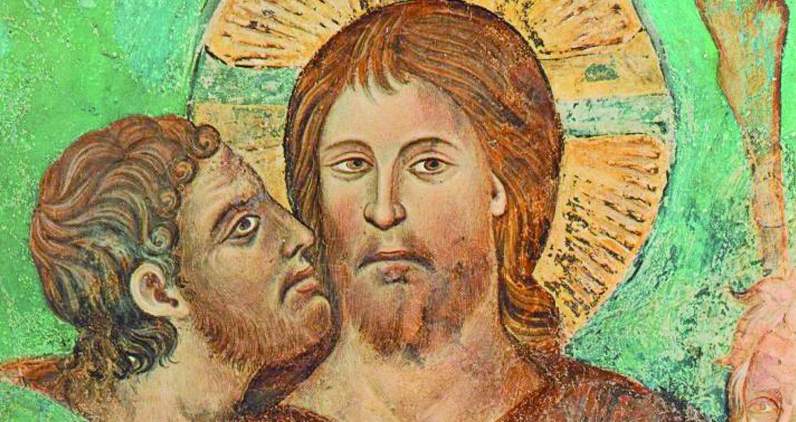Who was Judas Iscariot the traitor of Jesus?

Judas Iscariot is remembered for one thing: his betrayal of Jesus Christ. Although Judah later showed remorse, his name has become a symbol for traitors and coats throughout history. His motive seemed to be greed, but some scholars speculate on political desires hidden under his betrayal.
Questions for reflection
Believers can benefit from thinking about the life of Judas Iscariot and from considering their commitment to the Lord. Are we true followers of Christ or secret pretenders? What if we fail, give up all hope or accept his forgiveness and seek refreshment?
Judah was a common name in first century Judaism which means "praise to the Lord". The surname "Iscariot" means "man of Kerioth", a city in southern Judea. This means that Judah was the only one of the twelve non of Galilee. Of the synoptic Gospels, Mark reveals the minimum about Judah, attributing his actions to no particular reason. Judah is simply the one who handed Jesus over to the high priests. Matthew's account provides more detail and depicts Judah as an unscrupulous man. Luke goes even further, saying that Satan has entered Judah.
Realizations of Giuda Iscariota
One of the 12 original disciples of Jesus, Judas Iscariot traveled with Jesus and studied under him for three years. Like the other 11 disciples, Judah was called and sent by Jesus to preach the gospel of the kingdom of God, drive out demons and heal the sick.
Strengths
Judas felt remorse after betraying Jesus. He returned the 30 pieces of silver that the high priests and the elders had given him:
When Judas, who had betrayed him, saw that Jesus was condemned, he was taken with remorse and returned the thirty silver coins to the high priests and the elders ... So Judas threw the money in the temple and went away. Then he left and hanged himself. (Matthew 27: 3-5 NIV)
Points of weakness
Judas was a thief. As a treasurer, he was responsible for the group's sack of money and sometimes stole it. It was unfair. Although the other apostles abandoned Jesus and Peter denied it, Judah went so far as to lead the temple guard to Jesus in Gethsemane, and then identified Jesus by kissing him:
He (Judas) approached Jesus to kiss him, but Jesus asked him: "Judas, are you betraying the Son of Man with a kiss?" (Luke: 22: 47-48, NIV)
Judah became a traitor, selling the Lord to the high priests for thirty pieces of silver, the current rate for a slave in ancient times (Exodus 21:32). Some would say that Judas Iscariot made the biggest mistake in history.
Life lessons
An external manifestation of loyalty to Jesus makes no sense unless we also follow Christ in our hearts. Satan and the world will try to make us betray Jesus, so we must ask the Holy Spirit for help to resist them.
Although Judah attempted to undo the damage he had done, he failed to seek forgiveness from the Lord. Thinking that it was too late for him, Judas ended his suicidal life.
As long as we are alive and breathing, it is never too late to come to God for forgiveness and cleansing from sin. Unfortunately, Judas, who had been given the opportunity to walk in close friendship with Jesus, completely lost the most important message of Christ's ministry.
Biblical facts about Judas Iscariot
It is natural for people to have strong or mixed feelings about Judah. Some feel a sense of hatred towards him for his act of betrayal, others feel pity and some throughout history have considered him a hero. Regardless of how you react to him, here are some biblical facts about Judas Iscariot to keep in mind:
He made a conscious choice to betray Jesus: Luke 22:48.
He was a thief with greed in his heart: John 12: 6.
Jesus knew that Judah's heart was centered on evil and that he would not repent: John 6:70, John 17:12.
Judas' act of treason was part of God's sovereign plan: Psalm 41: 9, Zechariah 11: 12-13, Matthew 20:18 and 26: 20-25, Acts 1: 16,20.
Home town
Judas Iscariot was from Kerioth. The Hebrew word Ishkeriyyoth (for Iscariot) means "man from the village of Keriyyoth". Kerioth was about 15 miles south of Hebron in Israel.
References to Judas Iscariot in the Bible
References to Judas Iscariot in the Bible are found in Matthew 10: 4, 13:55, 26:14, 16, 25, 47-49, 27: 1-5; Mark 3:19, 6: 3, 14:10, 43-45; Luke 6:16, 22: 1-4, 47-48; John 6:71, 12: 4, 13: 2, 13: 26-30; 14:22, 18: 2-6; Acts 1: 16-18, 25.
Occupation
Judah was one of the twelve disciples of Jesus Christ and the custodian of the money for the group.
Genealogical tree
Father - Simon Iscariot
Key verses
Then one of the Twelve - the one called Judas Iscariot - went to the high priests and asked, "What are you willing to give me if I give it to you?" Then thirty silver coins counted for him. (Matthew 26: 13-15, NIV)
Jesus replied: "It is what I will give this piece of bread to when I have dipped it on the plate." Then, dipping the piece of bread, he gave it to Judas Iscariot, son of Simon. As soon as Judah took the bread, Satan entered him. (John 13: 26-27, NIV)
Just as he spoke, Judas appeared, one of the Twelve. With him there was a crowd armed with swords and sticks, sent by the chief priests, the masters of the law and the elderly. (Mark 14:43, NIV)